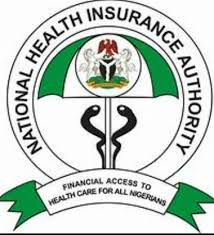The National Health Insurance Authority (NHIA) has announced a significant expansion of the national health insurance scheme to cover critical health conditions, including support for people living with HIV (PLHIV) and tuberculosis (TB) patients. This was disclosed by Mrs Aisha Abubakar Haruna, the acting Director of the Lagos Regional Office of NHIA, during the annual general meeting of the Nigerian Association of Insurance and Pension Editors (NAIPE) held in Lagos.
Mrs Haruna, who represented the Director General of NHIA, Dr Kelechi Ohiri, said that pilot schemes for the expanded health coverage have already commenced in four states as part of the authority’s efforts to ensure that more Nigerians can access healthcare regardless of their health challenges. She noted that this development aligns with the federal government’s plan to widen the scope of health insurance to accommodate extreme health cases that require continuous treatment and monitoring.
According to Haruna, as of June 2025, the NHIA has successfully registered 20 million Nigerians under the national health insurance scheme. This figure marks a significant increase from 16.8 million enrollees recorded in 2023, placing the authority on track to surpass the presidential target for 2027. She highlighted that the achievement was made possible through collaboration between state health insurance agencies, health maintenance organisations (HMOs), and the National Health Insurance Scheme (NHIS).
She said, “As of last month, June 2025, the NHIA has achieved 20 million enrollees. This progress is a result of combined efforts with state health insurance agencies, HMOs, and our National Health Insurance Scheme. The president set a mandate for us, and we have not only met but exceeded that target ahead of schedule.”
Haruna further disclosed that an additional 800,000 Nigerians have been captured under the Basic Healthcare Provision Fund, bringing the total number of beneficiaries under the fund to 2.6 million as of May 2025. She emphasised that the expansion of coverage, particularly to vulnerable groups such as PLHIV and TB patients, reflects NHIA’s commitment to providing inclusive healthcare to Nigerians regardless of their socio-economic status or health conditions.
The NHIA boss also addressed the authority’s ongoing strategies to tackle recurring issues in the healthcare system, such as medicine shortages, delays in patient care, and provider payment bottlenecks. She said that between 2024 and 2025, the authority had implemented several interventions, including a revision of medical tariffs, an overhaul of the accreditation process for healthcare providers, and the enforcement of a one-hour limit on care authorisation requests to prevent unnecessary delays in patient treatment.
Haruna said, “We recognised that issues like drug shortages, denial of care, and payment delays to providers have hampered healthcare delivery. That is why we have adopted a multi-project strategy to mitigate these challenges. This includes revising tariffs to reflect current realities, simplifying our accreditation processes, and ensuring that care authorisation is processed within one hour.”
She added that NHIA is also working on policies that will ensure uninterrupted access to medicines for patients, especially those on long-term treatment plans such as HIV and TB therapies. According to her, these reforms are necessary to enhance the credibility of the national health insurance system and to ensure that Nigerians get value for the contributions made towards their healthcare.
Industry observers have praised the NHIA’s latest achievements, noting that expanding health insurance to cover previously excluded conditions such as HIV and TB would greatly reduce out-of-pocket expenses for millions of Nigerians. It is also expected to encourage early detection and continuous treatment, especially in rural communities where healthcare access remains limited.
NHIA has reiterated its readiness to work with more stakeholders, including private sector partners, state governments, and healthcare providers, to build a more robust and efficient health insurance system that delivers quality care to all Nigerians.
With the government’s increasing focus on healthcare under the administration of President Bola Tinubu, the NHIA’s strides are seen as critical in achieving universal health coverage by 2030, a key component of the Sustainable Development Goals (SDGs).
